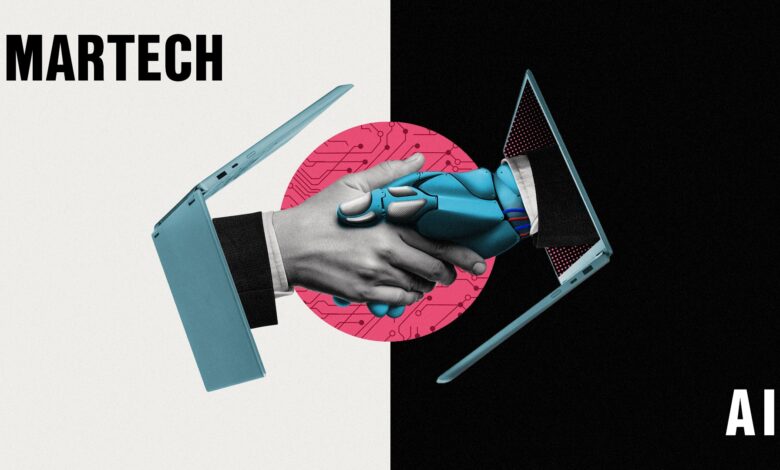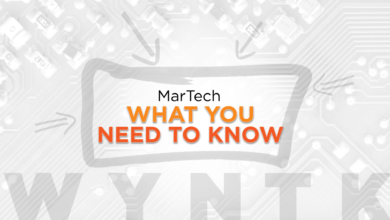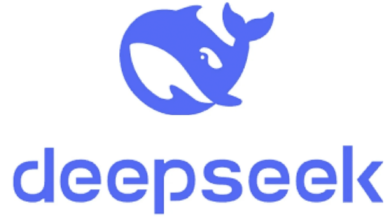Maximizing ROI in Martech by Conquering AI Challenges

AI is revolutionizing martech by automating tasks, offering real-time insights, and enhancing operational efficiency. However, the integration of AI into martech stacks presents several challenges. Here are actionable strategies to address these common AI issues.
Dig deeper: AI readiness checklist: 7 key steps to a successful integration
Common challenges in AI integration and how to overcome them
Integrating AI into existing martech stacks can be challenging due to the following reasons:
- Complexity of existing martech stacks: The abundance of solutions in martech and adtech can lead to confusion and inefficiency when incorporating AI-driven tools.
- Data quality and integration: AI requires clean, well-structured data to function effectively. Identify use cases that can leverage existing clean data sets for optimal results.
- Resistance to change: Teams may be hesitant to embrace AI tools due to concerns about loss of control or job displacement. Brands may also struggle with relinquishing control over brand safety and compliance in highly regulated industries.
- Skill gaps or resource allocation: Organizations often lack the expertise needed to deploy and manage AI successfully. Balancing upfront investment with long-term ROI can be a daunting task.
Addressing these challenges directly can facilitate a seamless integration of AI and unlock its full potential.
Start with clear objectives
Define and prioritize specific marketing challenges that AI can address, such as enhancing customer segmentation, analyzing creative performance, or optimizing ad spend.
Audit your martech stack
Identify gaps and opportunities in your existing martech stack where AI can improve performance. Focus on actionable opportunities that align with AI-ready datasets for a smoother integration process.
Invest in data readiness
For high-priority AI initiatives, prioritize data cleanup to ensure that your data is well-governed, integrated, and of high quality. Establish feedback loops for continuous learning and improvement of AI models.
Dig deeper: How to make sure your data is AI-ready
Build a cross-functional task force and partner to accelerate
Promote collaboration between data scientists, marketers, and technologists to align AI tools with business objectives. Consider a build-buy-partner approach to leverage external expertise and accelerate AI adoption.
Partnering with external specialists can facilitate the implementation of initiatives like predictive analytics and creative optimization without significant internal investment upfront.
Start small, scale iteratively
Begin with pilot AI projects in low-risk areas where resources align. Identify successes and use them to expand AI initiatives based on valuable insights.
Dig deeper: 5 ways to jump-start AI adoption
Adapting your martech stack for AI success
As AI continues to evolve, marketers must prepare their martech stacks to adapt to emerging trends. Here’s how:
Define and measure what matters
Identify key performance indicators (KPIs) linked to AI-driven initiatives, such as cost savings, increased conversions, or enhanced customer retention. Consider the value of time savings and faster production processes.
Clarify AI and privacy guardrails
Ensure alignment among marketing, privacy, technology, and legal teams on data usage restrictions for AI models. Embrace explainable AI tools to enhance transparency and accountability in decision-making processes.
Adopt interoperable platforms
Select tools that seamlessly integrate with other technologies. Platforms with flexible APIs can help marketers adapt quickly to new channels and datasets as the martech ecosystem evolves.
Invest in talent and partnerships
Enhance the skills of your internal teams and collaborate with AI-proficient agencies to maintain competitiveness. Encourage innovation at all levels through knowledge sharing and recognition of AI-powered initiatives.
Dig deeper: Laying the groundwork for AI in MOps: How to get started
The focus is no longer on whether to integrate AI into your martech stack, but on how to do so effectively and at scale. Despite challenges, the right strategies and tools can help you leverage AI’s transformative potential. By setting clear objectives, investing in data readiness, and iterating continuously, you can fully harness the power of AI.
Contributing authors are invited to create content for MarTech and are chosen for their expertise and contribution to the martech community. Our contributors work under the oversight of the editorial staff and contributions are checked for quality and relevance to our readers. The opinions they express are their own.
FAQs
1. How can AI enhance martech operations?
AI can automate tasks, provide real-time insights, and scale operations more effectively, leading to improved efficiency and performance in martech.
2. What are the common challenges in integrating AI into martech stacks?
Challenges include the complexity of existing martech stacks, data quality and integration issues, resistance to change, and skill gaps within organizations.
3. How can companies overcome resistance to AI adoption?
By fostering collaboration between teams, setting clear objectives, and starting with small-scale pilot projects, companies can gradually build trust and buy-in for AI initiatives.
4. Why is data readiness important for successful AI integration?
Clean, well-structured data is essential for AI to deliver meaningful insights. Investing in data governance, integration, and quality ensures that AI models can perform optimally.
5. How can marketers adapt their martech stacks for AI success?
Marketers can define relevant KPIs, establish AI and privacy guardrails, adopt interoperable platforms, and invest in talent and partnerships to ensure successful integration of AI into their martech stacks.




